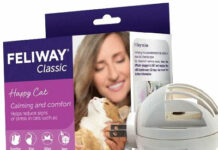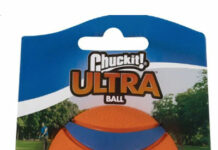As the weather becomes more inviting, many pet owners look forward to spending quality time outdoors with their furry companions. However, spring comes with its own set of challenges and potential hazards for pets. To ensure a safe and enjoyable season for your four-legged friends, here are 10 essential springtime pet safety tips.
1. Beware of Allergens
Just like humans, pets can experience seasonal allergies. Pollen, grass, and blooming flowers can trigger allergic reactions in some animals. Watch for signs such as excessive scratching, sneezing, or watery eyes. If you suspect your pet has allergies, consult your veterinarian for appropriate measures, which may include allergy testing or prescribed medications.
2. Flea & Tick Prevention
Spring marks the beginning of flea and tick season. These tiny pests can cause discomfort and transmit diseases to your pets. Ensure your furry friends are protected by using vet-recommended flea and tick preventatives. Regularly check your pet’s fur, especially after outdoor activities, and promptly remove any ticks. Consult your veterinarian for the best prevention plan based on your pet’s specific needs.
3. Spring Cleaning with Caution
As you embark on your spring cleaning routine, be mindful of the products you use. Common household cleaners and chemicals can be toxic to pets if ingested. Store cleaning supplies securely and read labels to identify pet-safe products. Consider using natural, pet-friendly alternatives to minimize the risk of accidental poisoning.
4. Garden Safety
While a blooming garden is certainly lovely, some plants can be toxic to pets. Research pet-friendly plants and avoid those that may pose a threat. Keep fertilizers, pesticides, and herbicides out of reach, as they can be harmful if ingested. Creating designated pet-friendly areas in your garden will help minimize the risk of accidental exposure to toxic plants and chemicals.
5. Proper Identification
With the warmer weather, you might find yourself spending more time outdoors with your pet. Ensure your furry friend has proper identification, including a collar with an up-to-date ID tag and a microchip. This precaution becomes even more crucial during outdoor adventures, reducing the chances of your pet getting lost and increasing the likelihood of a safe return if they do.
6. Stay Hydrated
As temperatures rise, it’s essential to keep your pet well-hydrated. Bring a water bottle and a collapsible bowl on walks and outings. Dehydration can lead to serious health issues, so make sure your pet has access to fresh water at all times, especially after vigorous activities.
7. Temperature Awareness
Spring temperatures can fluctuate, so be mindful of your pet’s comfort. Avoid exercising your pet during the hottest parts of the day, and never leave them in a parked car, as temperatures can escalate rapidly, leading to heatstroke. Pay attention to signs of overheating, such as excessive panting or lethargy, and provide a cool and shaded retreat when needed.
8. Outdoor Safety
Ensure your outdoor space is secure to prevent your pet from escaping or encountering potential dangers. Inspect fences and gates for any gaps or damage that could allow your pet to wander off. Be cautious of open windows and balconies, as curious pets may be at risk of falling. Supervise outdoor playtime to keep your pet safe and secure.
9. Stay Vigilant Around Water
Springtime outings often include trips to lakes, rivers, and pools, but water poses a drowning risk for pets, especially inexperienced swimmers. Always supervise your pet around water and consider investing in a life jacket for added safety during aquatic adventures. Additionally, be mindful of potential hazards like fast-moving currents and hidden debris.
10. Preventative Vet Care
Schedule a visit to the veterinarian for a comprehensive spring check-up. Ensure your pet is up-to-date on vaccinations, flea and tick prevention, and any necessary wellness exams. Discuss any concerns or changes in your pet’s behavior with your veterinarian to address potential health issues promptly.









